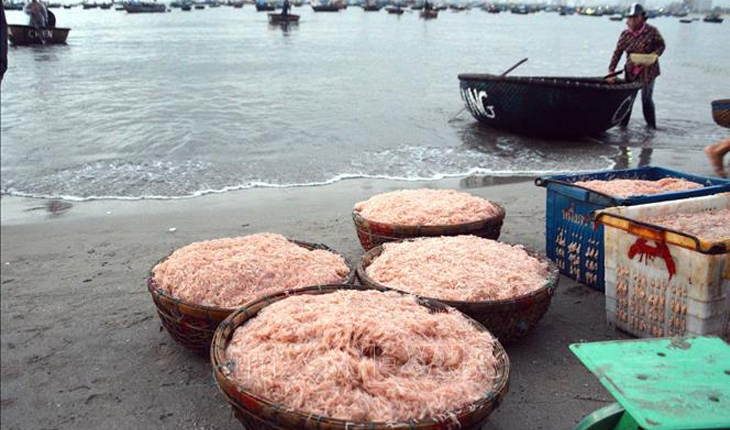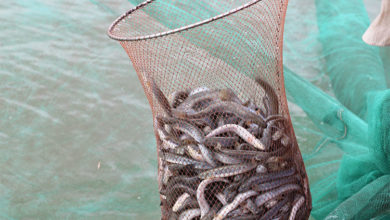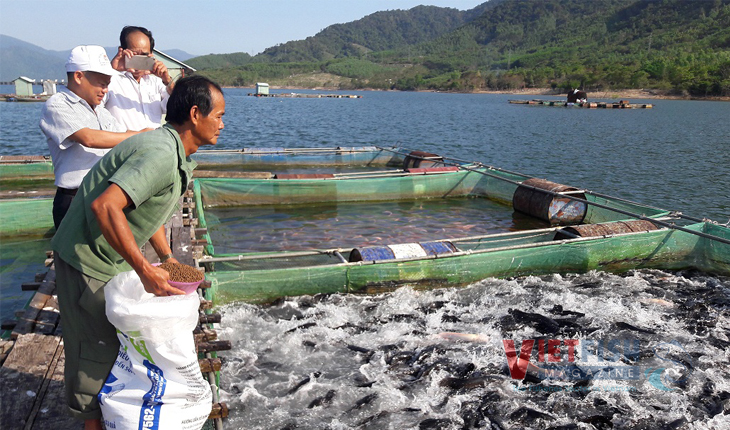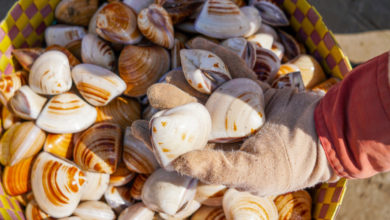Ninh Thuan accounts for over 50% of the country’s aquatic disease-free facilities
Ninh Thuan has built 11 disease-free facilities for shrimp seeds and parent shrimp, accounting for over 50% of the country's aquatic disease-free facilities.
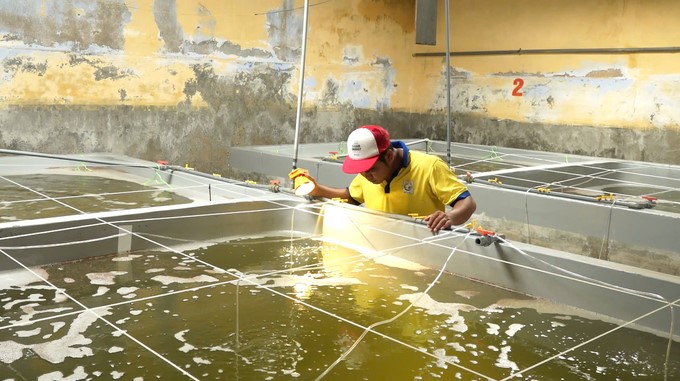
Ninh Thuan will continue to guide facilities with a production scale of over 1 billion seeds/year to build disease-free facilities. Photo: PC.
According to Mr. Huynh Minh Khanh, Deputy Director of the Ninh Thuan Sub-Department of Animal Husbandry and Veterinary Medicine, input shrimp seed is identified as very important for commercial shrimp farming, so the locality has paid attention to controlling diseases on shrimp seeds right from the beginning.
In particular, Ninh Thuan Veterinary Agency currently carries out three basic tasks in parallel, including quarantine work, proactive sampling to monitor pathogens in production facilities, and building disease-free facilities.
“Building disease-free facilities is an extremely important work right at the beginning. These facilities can identify threats that cause unsafety in shrimp seed diseases, from which production facilities propose timely analysis, assessment, prevention, and control solutions,” said Mr. Huynh Minh Khanh.
Currently, Ninh Thuan has built 11 disease-free facilities, including 9 shrimp seed production facilities and 2 parent shrimp production facilities, accounting for over 50% of the country’s aquatic disease-free facilities. The amount of shrimp seeds from 9 aquatic disease-free facilities accounts for 15-20% of the province’s shrimp seed amount.
According to Mr. Huynh Minh Khanh, disease prevention for shrimp seeds at the highest level is self-management of input factors. Ninh Thuan is focusing on building disease-free facilities, so these facilities must self-recognize the risk of pathogens transmitted from humans and input factors such as food and seeds. From there, come up with their own ways to identify and control pathogens and preserve evidence.
“Ninh Thuan has guided and certified 9 shrimp seed facilities to be safe from three types of diseases: white spot disease, acute hepatopancreatic necrosis disease, and infectious hypodermal and hematopoietic necrosis; and 2 parent giant tiger prawn and whiteleg facilities to be safe from all seven types of diseases,” said Mr. Huynh Minh Khanh.
In the coming time, Ninh Thuan will continue to guide facilities with a production scale of over 1 billion seeds/year and sufficient capacity and resources to carry out this work, thereby continuing to build disease-free facilities.
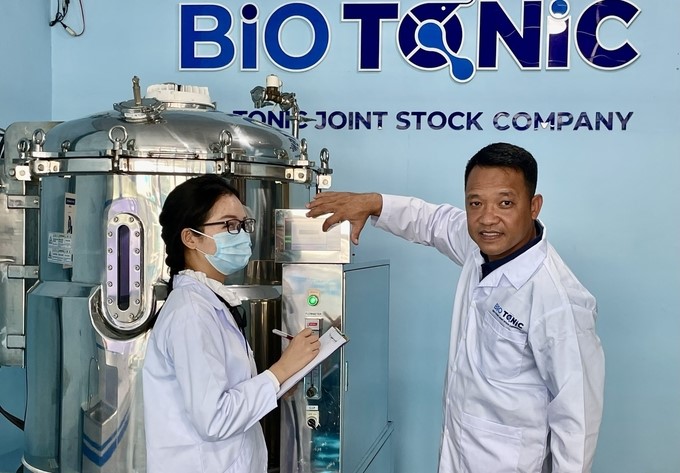
100% of facilities under the Ninh Thuan Aquatic Breed Association meet nursery conditions and biosafety in production. Photo: PC.
Mr. Le Van Que, Chairman of the Ninh Thuan Aquatic Breed Association, said that when building disease-free facilities, shrimp seed production facilities will enjoy the rights prescribed by the State. Officials and employees will be thoroughly trained on biosafety control in hatcheries. From there, the shrimp seed production facility can control the quality of its shrimp seed, affirming the facility’s brand to customers.
According to Mr. Le Van Que, the first thing members of the Ninh Thuan Aquatic Breed Association need to do is comply with the industry’s regulations in nursery and shrimp seed production.
“Members’ compliance will help control cross-contamination and pathology in the hatchery. Only then will the quality of shrimp seeds truly be guaranteed. In recent times, 100% of facilities under the Association have met conditions for nursery and biosafety in production, which is a very good sign,” said Mr. Le Van Que.
However, according to Mr. Le Van Que, shrimp seed production facilities in Ninh Thuan are now mainly on a small and medium scale. Therefore, preparing the human resources for disease control is also a difficult problem.
Therefore, it is necessary to increase personnel and continuously control traceability documents. Currently, businesses have also seen the benefits of participating in the disease surveillance program and aim to reach 100% of disease-free facilities in the 2026-2030 period.
Source: VNA


